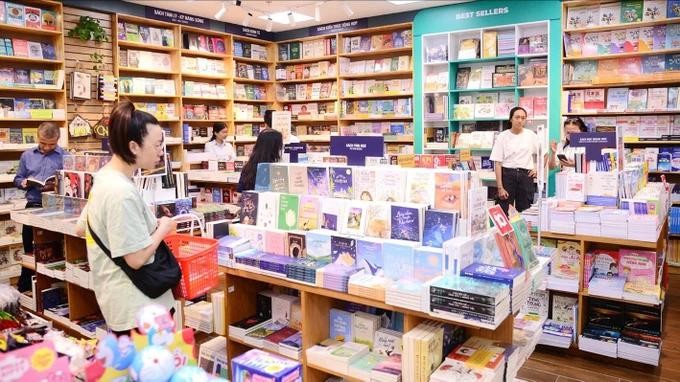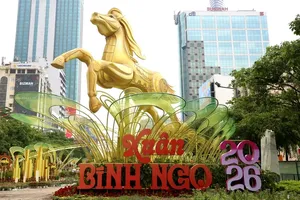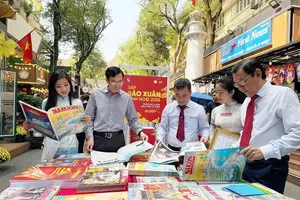
Despite their important role, these distribution channels of books have been bumping into difficulties in attracting readers in today's context.
Recently, Binh Duong Culture - Trade Joint Stock Company opened Fabico Bookstore - a member of the Fafasa Bookstore system in Ho Chi Minh City Book Distribution Company at Parc Mall Commercial Center at 547-549 Ta Quang Buu in District 8.
Previously, Phuong Nam Culture Joint Stock Company consecutively opened Phuong Nam - Hoang Viet Bookstore in HCMC’s Tan Binh District and Phuong Nam - Nha Trang Bookstore in Nha Trang City of Khanh Hoa Province.
In early September, Alpha Books Company inaugurated a new bookstore named Read Station, featuring the “4 in 1” model, located at 311 Nguyen Thai Binh in Tan Binh District. This marks the third location launched by the company, following the initial store on Huynh Thuc Khang extended street in Hanoi’s Dong Da District and the second store on Thanh Nhan Street in Hanoi’s Hai Ba Trung District; both of which also opened this September.
Since the start of the year, Fahasa has launched new openings and renovations, resulting in a total of 14 bookstores established in various locations nationwide, including Cai Be in the Mekong Delta Province of Tien Giang , the Central provinces of Thua Thien -Hue, Quang Ngai, and Ho Chi Minh City.
Notably, Fahasa simultaneously inaugurated two bookstores which are the Fahasa Ba Thang Hai Bookstore in Vincom Plaza Ba Thang Hai Shopping Center in District 10 and the Fahasa Hung Vuong Bookstore in Hung Vuong Plaza Shopping Center in HCMC’s District 5 on August 9.
Fahasa continues to be the largest bookstore chain in the country, boasting 120 bookstores across 47 provinces and cities.
Despite the growing popularity of e-commerce, numerous individuals continue to prefer traditional bookstores as their favorite location.
Ms. Minh Anh in District 1 disclosed that she likes going to bookstores because she really needs a place to sit and read to learn more about the book before buying it, because the current book prices are not cheap. She added that if a person buy through e-commerce channels, they only hear the introduction; even sometimes when a person receives the book, they will find the book’s content is not suitable.
The Reading Station represents a comprehensive “4 in 1” model that encompasses a bookstore, coffee shop, library, and a venue for cultural and knowledge exchange. This innovative concept has been passionately developed by Chairman Nguyen Canh Binh of the Board of Directors of Alpha Books and members of his team.
Chairman Nguyen Canh Binh emphasizes that while traditional bookstores will persist, their growth will be limited compared to the past; instead, there will be a rise in cultural spaces. He revealed that the goal is to create and nurture a network of bookstores that serve as cultural, educational, and learning environments, leveraging the strengths of the publishing industry.
According to Chairman Nguyen Canh Binh, the Station will issue membership cards. In addition to the right to read and buy discounted books, those with membership cards will have access to valuable knowledge sources from large data warehouses around the world.
Deputy General Director of Fahasa Pham Thi Hoa acknowledged the competition between traditional bookstores and e-commerce channels today. However, according to Ms. Hoa, for Fahasa, the traditional bookstore model still has good growth.
At Fahasa bookstores, alongside their extensive collection of books, a variety of supplementary products are now available to cater to the preferences of young consumers, including trendy items and seasonal merchandise. As a result, even though the space allocated for books has been reduced by 5 percent compared to previous years, the overall revenue generated from book sales has remained stable in recent years.
Regarding the solution, Ms. Pham Thi Hoa mentioned that they have been gradually evolving to align with current trends. This includes modernizing and professionalizing bookstores, enhancing staff training for better customer service, and selecting high-quality trending products to promptly meet customer needs.
























